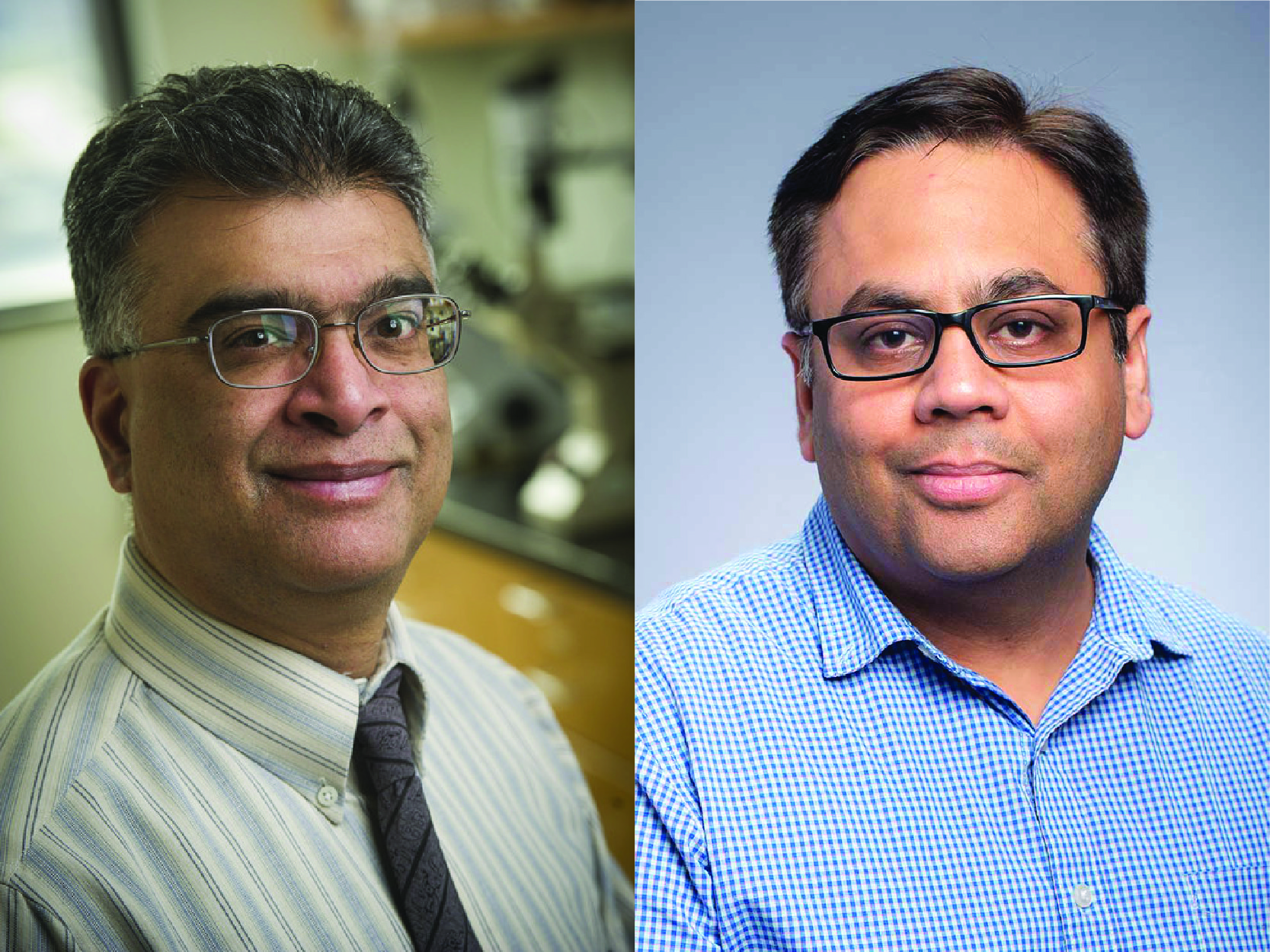 Drs. Ramanadham (left) and Bhatnagar (right)
Drs. Ramanadham (left) and Bhatnagar (right)
Department of Cell, Developmental and Integrative Biology (CDIB) Professor Sasanka Ramanadham, Ph.D., and Division of Endocrinology, Diabetes, and Metabolism Associate Professor Sushant Bhatnagar, Ph.D., published their perspective on Type 2 diabetes in the scientific, peer-reviewed Comprehensive Physiology journal (June 2023, PMID: 37358504).
The Comprehensive Physiology journal ranks 5th among all physiology journals in the world.
Ramanadham and Bhatnagar are also senior scientists in the UAB Comprehensive Diabetes Center, where their labs are located. Their work is supported by several members, including undergraduate students, Ph.D. candidates, post-doctoral fellows, and faculty instructors.
Their article, “Noncanonical Regulation of cAMP-Dependent Insulin Secretion and Its Implications in Type 2 Diabetes,” provides a didactic synopsis of the current knowledge of mechanisms that contribute to insulin secretion by β-cells in the pancreas and how it might be restored in those with Type 2 diabetes.
Ramanadham and Bhatnagar offer perspectives on novel, to date unrecognized, pathways that warrant consideration and study, in the context of improving insulin secretion in T2D.
Further, they specifically discuss how insulin secretion is regulated by unconventional (noncanonical) pathways involving cAMP, a molecule involved in intracellular signaling, and how these noncanonical processes might be relevant to the development or progression of dysregulation of glucose homeostasis in Type 2 diabetes.
After extensive analysis and discussion, Ramanadham and Bhatnagar ultimately convey the potential of targeting noncanonical pathways along with canonical (conventional) pathways as a more comprehensive approach for restoring β-cell function in Type 2 diabetes. Traditionally, scientists researching cell signaling in Type 2 diabetes have not considered the pathways identified in their review.
“The combination of noncanonical and canonical pathways as a way to improve β-cell function for those with Type 2 diabetes would bring new insights into the disease's pathophysiology, potentially leading to novel therapeutic approaches for managing or treating Type 2 diabetes,” said Ramanadham.
Other authors of the research article include the late John Turk, M.D., Ph.D., a former Alan A. and Edith L. Wolff Professor of Endocrinology in the Division of Endocrinology, Metabolism & Lipid Research at the Washington University School of Medicine in St. Louis. Dr. Turk contributed seminal work relating to beta-cell function and the contribution of lipid signaling to insulin secretion from the beta-cells.
This work was supported by NIH/NIDDK (R01DK126444-01 and R01DK110292), NIH/HIRN (U01DK127786), UAB Department of Cell, Developmental, and Integrative Biology, and UAB Comprehensive Diabetes Center to SR; and SB laboratory has been supported by UAB Department of Medicine, UAB Pilot awards (5P30DK079626-10, 5P30DK079626-10), NIDDK (R01DK120684-01, 1R21DK129968-01, 4R00DK095975-03), and American Diabetes Association (Grant #1-18-PDF-103).